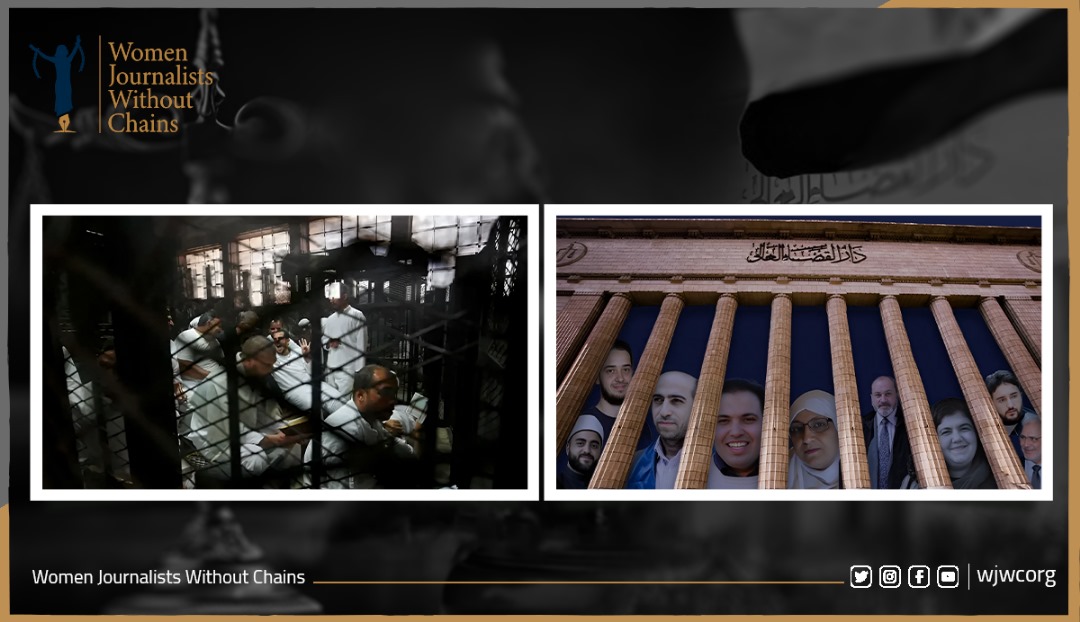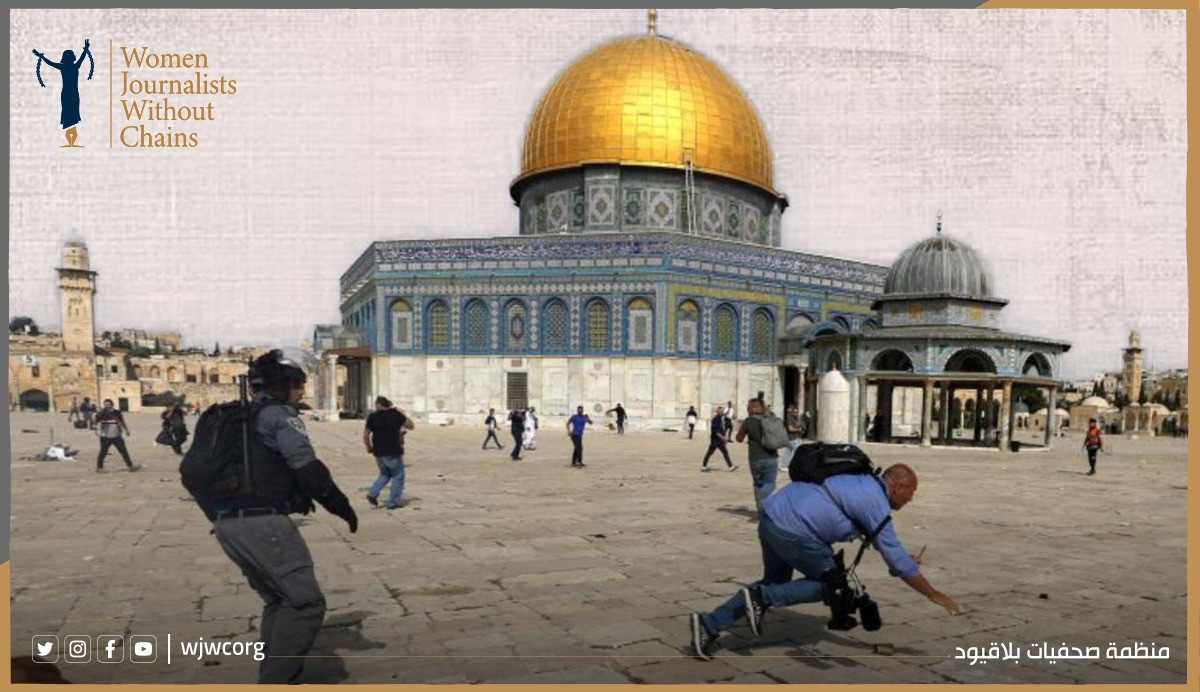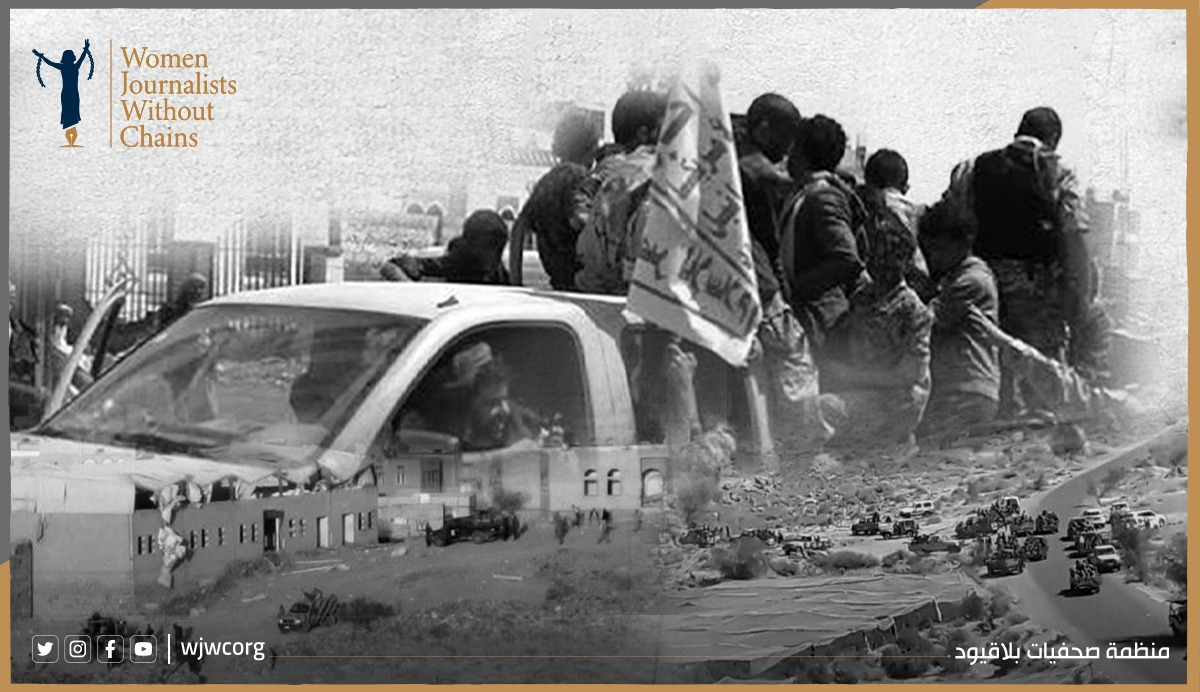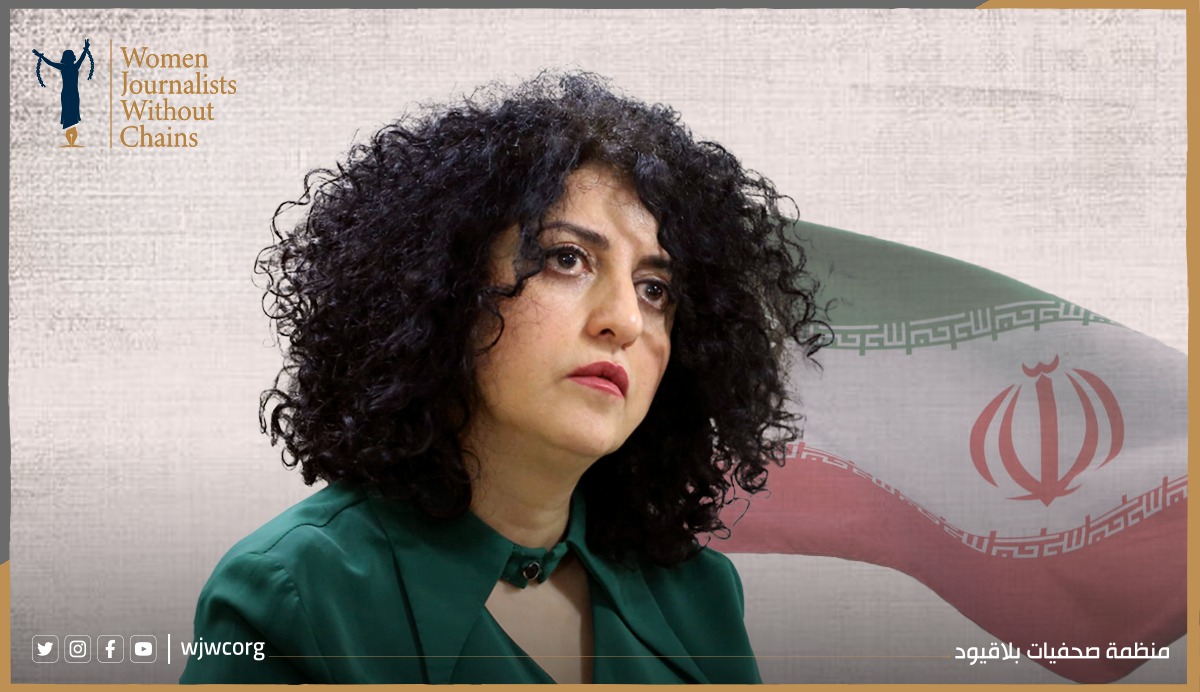Women Journalists Without Chains (WJWC) has expressed grave concern over the escalating judicial and security crackdown in Egypt,
following the Cairo Court of Appeals’ decision last Thursday to refer 415 citizens to terrorism circuit trials in three separate cases. The organization warns that the move represents a dangerous escalation in a broader pattern of systemic violations that undermine the most basic guarantees of justice, including the rights to due process, legal representation, and protection from arbitrary detention.
Among the referred cases is Case No. 1935 of 2021 – Supreme State Security, involving 125 defendants, including 54 residents of North Sinai and a significant number of women. According to legal defense teams, the case files have remained inaccessible to defense lawyers since the beginning of investigations—effectively stripping defendants of their right to mount a defense. WJWC described this as a flagrant violation of both Egyptian constitutional guarantees and Egypt’s international obligations, including Article 14 of the International Covenant on Civil and Political Rights, which mandates fair trial standards and prompt access to legal counsel.
“The Egyptian authorities are using the judiciary as a tool of repression,” WJWC said in a statement. “These referrals are not about justice—they are about silencing dissent, punishing families, and normalizing abusive legal procedures that violate every principle of a fair trial.”
Particularly alarming, the organization notes, is the targeting of women in Sinai who face prosecution not on the basis of individual criminal responsibility, but solely because of familial ties to previously accused men. WJWC condemned this as a serious violation of the principle of personal culpability and a dangerous affront to local traditions and tribal social structures in the Sinai region. “This approach risks eroding the social fabric and further alienating already marginalized communities,” the organization warned.
The organization also highlighted the practice of judicial “recycling”, in which individuals who were previously acquitted or released are re-arrested and charged in new or similar cases. This practice is exemplified in Case No. 1107 of 2020, where at least 68 individuals—some with critical health conditions—have been detained again under recycled charges. Among them is Hamada Abdel Gawad Baidak, age 60, who suffers from severe respiratory illness and has been denied medical treatment despite multiple appeals. WJWC emphasized that such recycling blatantly violates the international legal principle of “ne bis in idem”—the prohibition of double jeopardy.
“These are not isolated cases,” WJWC said. “They are part of a deliberate pattern of state repression, where courts and prosecutors are complicit in violating the rights of citizens who should never have been detained in the first place.”
WJWC cited reports by independent watchdogs, including the Egyptian Front for Human Rights and Sinai for Human Rights, which have documented cases of enforced disappearance, torture, and forced confessions in the pretrial process. These reports note that complaints submitted by defense lawyers and families are routinely ignored by the State Security Prosecution.
The organization reiterated its call for the immediate release of all arbitrarily detained individuals, with special urgency for women, elderly detainees, and those who have previously been acquitted or held beyond the legal limits of pretrial detention. WJWC also called for:
· An end to the practice of judicial recycling;
· Full and unhindered access by lawyers to case files and investigations;
· Accountability for violations committed by security and judicial personnel;
· The establishment of an independent fact-finding committee to investigate political trials and abuses of anti-terrorism legislation.
WJWC urged the international community to closely monitor ongoing trials in Egypt and demand that Egyptian authorities comply with international human rights obligations. “The continuation of these practices not only devastates the lives of detainees and their families—it also signals the collapse of legal credibility within the Egyptian judicial system,” the statement said.
“The prosecution of women for kinship, the re-arrest of the acquitted, and the systemic denial of legal rights are not just abuses—they are symptoms of a deepening crisis in the rule of law,” WJWC concluded. “Without urgent intervention, these measures risk further undermining public trust and accelerating Egypt’s slide into unchecked authoritarianism.”

 En
En  Ar
Ar 